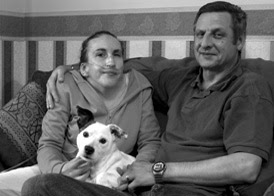
Kelly Taylor, a 30-year old terminally-ill woman, is in severe pain, confined to a wheel chair and has breathing problems. She has been given less than a year to live. She wants to die soon but doesn’t want to leave her country to do so.
The legal framework in the UK not only denies Britons like Taylor of their human rights but also the right to die in their own country. It is a country where euthanasia and assisted suicide are illegal.
Earlier this year, Bristol-based Taylor began a landmark court battle to force doctors to let her die. Her lawyers are arguing that the doctors are breaching her human rights by denying her medication that could kill her. Her trial, calling for a change in the British law, is due April 24 in the High Court.
“Her case highlights the impossible dilemma that the current law presents to patients with terminal illness where pain relief and palliative care do not work to relieve their condition,” according to Deborah Annetts, chief executive of Dignity in Dying, a campaigning organization. In May 2006, the Assisted Dying for the Terminally Ill Bill, which would legalize assisted suicide in the nation, was defeated in the House of Lords.
Taylor suffers from Eisenmenger's Syndrome, a heart and lung condition associated with a congenital defect, along with spinal condition called Klippel-Feil syndrome. She wants doctors to increase her morphine dose to induce a coma-like state, even though the drug may hasten her death – a decision called “double effect.” Her doctors are denying her of her will, citing legal and ethical concerns.
While many like Taylor are calling for assisted suicide, some doctors, campaigners and religious bodies oppose the argument saying introducing assisted dying would create pressure for all seriously-ill people to consider it even if they would not otherwise entertain the idea and may have negative implications on the wider society.
“Patients might feel obliged to choose it for the wrong reasons, such as if they were worried about being a burden or concerned about the financial implications of a long terminal illness,” said Franca Tranza, Press Officer at British Medical Association. She also said the concept of assisted dying risks undermining patients’ ability to trust their doctors and the health care system by generating anxiety among vulnerable, elderly and disabled patients.
A spokesperson for the Catholic Bishops' Conference of England and Wales reiterated Church`s stance in opposing euthanasia or assisted suicide is based on the principle “that all human life is sacred, and no one has the right to take that life.”
Despite such moral and religious beliefs reflected by some, the wider society is calling for a change in the law. Four out of five people in the UK say the law should allow a doctor to end the person’s life at their request and three out of five people say the law should allow a doctor to assist the person to take their own life, according to the British Social Attitudes Survey published in January.
Daniel Sokol, medical ethicist at Keele University explained the attraction towards the concept of euthanasia and assisted suicide by saying, to die with dignity is "dying in a way which most closely matches your perception of yourself and your life story.”
Assisted suicide is legal in some European countries including Netherlands and Switzerland, prompting some Britons to leave their country to die. The presence of Dignitas clinic in Switzerland has helped more than 40 Britons to end their lives, including Dr Anne Turner, a retired doctor from Bath in January last year.
If Taylor wins the battle, she would not only save others in similar situation from everyday suffering, but will also make it easier for them to die closer to their beloved ones.
“If I went abroad to die I would do so knowing that my wonderful husband Richard, who would go with me, could face prosecution on his return to the UK, and I could not allow that to happen,” she said in her statement on the Dignity in Dying website. “I admire the people who make such a journey, but really, it should not be necessary” if the laws are in place.
April 24 is a day to watch and see for all those wanting to die a dignified death.
1 comment:
I saw a play a couple of years ago with Kim Cattrall (Samantha Jones in Sex and the City), in which she acted as a terminally ill woman who wished to die naturally rather than be supported by medication. The doctor was her enemy throughout the play, as he opposed her choice but only because he was devoted to saving life. Its a sentimental play in some ways but I was particularly touched and perhaps a little disturbed by the ending. It was not just that she had convinced those around her that she should be allowed to die, after going to court and considerable "Samantha-style" speeches, it was the fact that in the silent, dark moments when the machines were off and she was left alone, as the lights dimmed, her face expressed a moment of pain as she fell asleep forever. I couldn't get that picture out of my mind since then. I just wonder which pain is better to endure.
Post a Comment